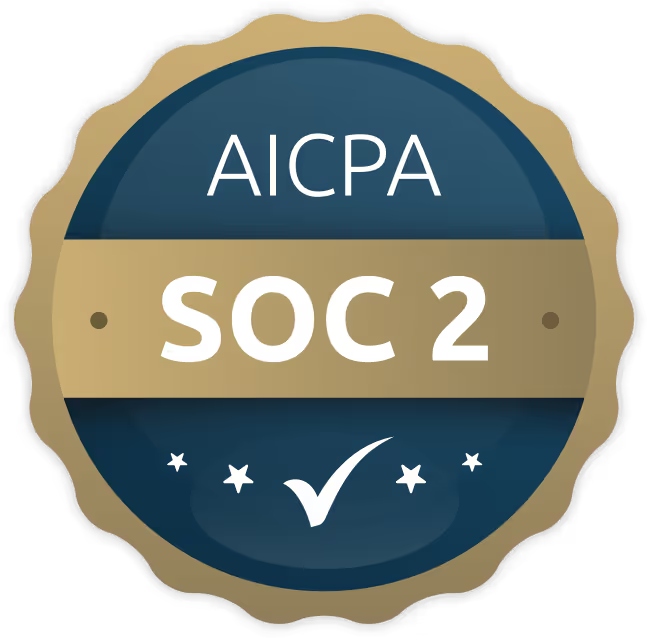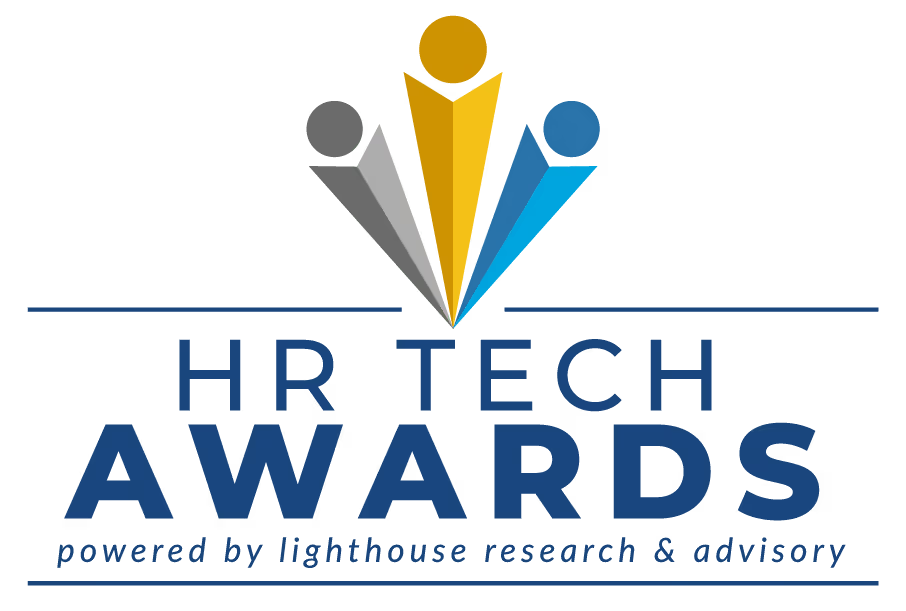
La plupart des entreprises entament 2021 avec des défis uniques liés à la pandémie de COVID-19. À mesure que les interactions avec les clients deviennent de plus en plus numériques, la demande pour des expériences de service à la clientèle efficaces augmente. Les problèmes courants des centres de contact sont amplifiés et les entreprises doivent être proactives pour les résoudre le plus tôt possible. Afin de prospérer dans un contexte de COVID-19, les entreprises doivent intensifier leur jeu. Le soutien à la clientèle est l'expérience que vous offrez aux consommateurs à chaque point de contact. Investir dans votre centre de contact et dans votre équipe de soutien a un impact immédiat sur divers aspects de votre entreprise, de la fidélisation à la fidélisation et à l'acquisition. Voici 7 défis auxquels la plupart des centres d'appels sont confrontés et des conseils sur la façon de les gérer.
Comment pouvez-vous augmenter le volume d'embauche au centre d'appels ?
Alors que de nombreuses industries doivent ralentir en réponse à la crise de la COVID-19, les centres d'appels prennent de l'expansion. En fait, « le marché mondial des centres d'appels, qui comprend les centres de contact, les centres d'accès multimédia et les centres d'interaction avec les clients, devrait culminant à 481 milliards de dollars d'ici 2024, propulsées par la nécessité pour les entreprises de fournir des services axés sur le client. » Il n'a jamais été aussi important d'offrir de belles expériences par téléphone, par courriel ou sur les médias sociaux.De nos jours, la majorité des entreprises essaient de fournir des solutions qui amènent les clients à résoudre eux-mêmes les problèmes, soit par le biais du site Web de l'entreprise ou des applications. Cependant, alors que les entreprises adoptent cette numérisation, des travailleurs qualifiés du service à la clientèle apportent une touche humaine essentielle au maintien de relations positives avec la clientèle. Plus important encore, le passage à la numérisation augmente la demande de représentants des centres de contact pour gérer des problèmes complexes que les clients ne peuvent pas résoudre eux-mêmes. Cela signifie qu'un volume élevé d'embauche peut aller de centaines à des milliers d'agents au cours d'une période donnée. Pour embaucher un volume élevé, vous devez être là où se trouve votre talent cible. Les agrégateurs d'emplois comme Indeed et les canaux de médias sociaux comme Linkedin sont des terrains de piétination courants pour les demandeurs d'emploi avides, alors établissez une forte présence et un processus de candidature facile. Pour élargir encore plus votre bassin de talents, revisitez votre base de données de talents existante. Les anciens candidats, et en particulier les anciens interviewés, qui n'ont pas fait la réduction la dernière fois pourraient convenir parfaitement aujourd'hui. Les demandeurs d'emploi grandissent constamment, perfectionnent leurs compétences et acquièrent de l'expérience, de sorte que les futurs agents du centre de contact pourraient être juste sous votre nez. Une fois que vous avez un bassin de talents potentiels, l'étape suivante consiste à sélectionner la bonne personne.
Comment pouvez-vous sélectionner rapidement les candidats pour les compétences appropriées ?
Pour passer à l'échelle rapide, vous devez réduire efficacement votre bassin de talents. Cela peut représenter un défi pour les employeurs. L'inefficacité de la sélection des candidats peut entraîner une augmentation du roulement du personnel, des séances de formation coûteuses et une restructuration d'entreprise. Dans le pire des cas, embaucher les mauvaises personnes peut nuire à votre marque. 89 % des consommateurs le feraient »commencer à faire affaire avec un concurrent à la suite d'une mauvaise expérience client.» Compte tenu de la fragilité de la fidélisation de la clientèle, il est plus important pour les employés de donner la bonne voix à la marque. Pour commencer le dépistage, vous devez définir les compétences que vous recherchez. Il peut s'agir de la maîtrise de la langue, de l'expérience propre à l'industrie, de l'ancienneté et même des compétences générales. Avoir une bonne compréhension du profil idéal des talents vous permettra de commencer à chercher les bons outils de sélection de CV et d'évaluation des compétences. Les outils alimentés par l'IA peuvent aider les équipes d'acquisition de talents à présélectionner les candidats en fonction de mots-clés et de questions spécifiques. Outils d'évaluation des compétences, comme celui développé par Direction générale de l'apprentissage, peut tester l'anglais parlé, les compétences en conversation écrite et les compétences générales telles que l'écoute active, l'empathie et la confiance en soi. L'outil d'automatisation de l'IA vous aide non seulement à sélectionner efficacement les bons talents, mais augmente également la vitesse d'acquisition des compétences.
Comment les données d'évaluation préalable à l'emploi améliorent-elles le rendement ?
La collecte et l'analyse de données pour améliorer le rendement des centres d'appels sont une pratique courante dans l'industrie. Cependant, de nombreuses entreprises négligent l'importance des résultats de l'évaluation préalable à l'embauche pour optimiser leurs équipes de centre de contact, ce qui améliore directement le rendement et l'expérience. Non seulement ces indicateurs donnent un aperçu des talents embauchés, mais ils fournissent également des lignes directrices pour l'intégration, la formation et le perfectionnement afin de tirer le meilleur parti du potentiel de chaque agent. Une fois que vous aurez identifié les lacunes de votre stratégie de soutien à la clientèle, les tests préalables à l'embauche vous aideront à combler ces lacunes. Par exemple, si votre centre de contact utilise davantage le courrier électronique, il est essentiel d'embaucher des talents possédant de solides compétences en langue écrite. Les tests vous indiquent également où vos candidats se classent pour différentes compétences. De plus, les renseignements exploitables vous aident à adapter votre programme de formation et de perfectionnement. Vous pouvez ainsi fournir à vos nouveaux employés les connaissances dont ils ont besoin pour offrir un excellent soutien à la clientèle. L'utilisation d'outils d'évaluation qui testent ces compétences écrites scénarios en cours d'emploi est-ce le besoin de l'heure. Ils vous aident à filtrer les nouvelles recrues qui seraient au travail à partir du jour zéro. De plus, il est plus facile pour les entreprises mondiales de maintenir l'uniformité des services entre les différentes divisions. De plus, les évaluations préalables à l'emploi peuvent vous aider à éliminer les préjugés inconscients liés à la prise de décisions fondées sur unsensation intestinale». Malheureusement, les professionnels de l'embauche sont susceptibles de prendre des décisions en un clin d'œil au sujet des candidats potentiels dans les cinq minutes qui suivent leur rencontre. Même s'il s'agit d'une réponse subconsciente, elle peut filtrer les talents hautement qualifiés. Les décisions émotionnelles fondées sur les premières impressions ont peu d'impact positif en milieu de travail. En fait, environ le tiers des nouveaux employés ont démissionné au cours des six premiers mois. Les décisions d'embauche fondées sur des données sont beaucoup plus susceptibles d'aboutir à des choix judicieux qui augmentent le rendement et la rétention.
Comment pouvez-vous améliorer la résolution du premier appel ?
Les mesures de résolution du premier appel reflètent la capacité d'un agent de centre d'appels à résoudre un problème lors de la première interaction avec le client. Un taux de résolution au premier appel plus élevé indique qu'une équipe de soutien à la clientèle est bien formée, efficace et comprend l'entreprise. Le fait de connaître immédiatement la bonne réponse se traduit par des appels plus courts et moins de suivis avec le client. Cela se traduit par une amélioration de l'expérience client et une augmentation de la satisfaction globale de la clientèle. Malheureusement, de nombreux agents ont du mal à trouver la bonne solution dès le premier appel. Cela peut être dû au manque d'expérience dans l'industrie, au manque de formation ou au manque de possibilités de perfectionnement. Selon Freshdesk, « les agents du service à la clientèle ne répondent pas aux questions 50 % du temps. » Une solution facile à mettre en œuvre consiste à mettre à niveau la base de connaissances de votre centre d'appels. Un centre d'aide centralisé pour vos agents peut optimiser le flux de travail et garantir que les informations correctes sont partagées. La base de connaissances doit contenir toutes les informations essentielles sur vos produits et services, ainsi que les questions et problèmes courants que les clients peuvent éprouver. De plus, la formation de vos agents à naviguer rapidement dans la base de connaissances peut réduire davantage le temps d'appel et améliorer la résolution du premier appel. Envisagez de tenir des réunions d'équipe régulières pour discuter des mises à jour clés et obtenir des commentaires de vos agents sur les informations manquantes. En plus d'une base de connaissances, l'amélioration des compétences générales essentielles facilite également la résolution du premier appel. Bien qu'il soit essentiel de tester les compétences générales avant d'embaucher votre équipe, la formation et le perfectionnement continus aident les agents à maintenir leurs compétences pointues et à leur donner les moyens de se développer professionnellement. Les compétences en communication et en langage, ainsi que les compétences d'écoute active et d'empathie connexes, contribuent grandement à résoudre les problèmes des clients dès le premier appel.
Comment pouvez-vous stimuler la satisfaction de la clientèle ?
Les équipes de soutien à la clientèle sont souvent le visage d'une organisation, d'autant plus que la numérisation devient de plus en plus nécessaire. Cela signifie que les agents des centres de contact ont le pouvoir et la responsabilité d'augmenter la satisfaction des clients, d'améliorer l'engagement et de valoriser votre marque. En dotant les agents des outils et des connaissances nécessaires non seulement pour résoudre les problèmes des clients, mais aussi pour le faire d'une manière qui profite au client dans la mesure du possible, les entreprises peuvent garantir des expériences positives à chaque interaction. L'amélioration de l'expérience se fait souvent en deux étapes. Avant de mettre en œuvre des solutions, vous devez mesurer la satisfaction de la clientèle. Les données tirées des scores du CSAT, ainsi que les résultats des indicateurs de rendement clés, fournissent des lignes directrices pour les changements ou les améliorations qui auront une incidence directe sur la satisfaction. Ensuite, vous devez donner aux agents des centres d'appels les moyens de piloter ces changements grâce à des possibilités de formation et de perfectionnement. À mesure que le paysage des centres de contact change, il est également essentiel que les entreprises soient là où se trouvent leurs clients. Selon le Rapport sur les tendances de l'expérience client Zendesk 2020 « Les équipes très performantes sont deux fois plus susceptibles d'utiliser une solution omnicanale qui combine soutien, libre-service, chat ou téléphone. » Cela signifie identifier vos auditoires et renforcer votre présence au service à la clientèle en fonction des canaux qu'ils utilisent le plus.
Comment pouvez-vous aider les agents du centre de contact à bien conserver les informations ?
Les agents des centres de contact peuvent se trouver dans un certain nombre d'industries. Souvent, ils auront de l'expérience dans plusieurs secteurs différents. Cela signifie qu'il est essentiel d'apprendre les tenants et aboutissants de chaque nouvelle entreprise pour devenir un fournisseur de services à la clientèle expert. Les organisations peuvent prendre des mesures essentielles pour préparer les nouveaux agents à s'attaquer aux problèmes précis qui ont une incidence sur leur entreprise tout en prévoyant offrir une formation et un soutien supplémentaires tout au long de leur mandat au sein de l'entreprise.Les agents des centres d'appels doivent être dotés des bonnes ressources, des outils de gestion des problèmes des clients à une bibliothèque de connaissances approfondie. Le fait de rendre l'information facilement consultable prépare non seulement les agents à résoudre les problèmes rapidement et efficacement, mais favorise également l'apprentissage actif. En disposant de ces outils facilement accessibles, les agents de soutien à la clientèle sont habilités à développer leurs compétences et à en apprendre davantage sur l'entreprise. Des occasions régulières de perfectionnement des compétences au moyen de vérifications et d'évaluations des connaissances sont également bénéfiques. Ils veillent à ce que tous les agents aient les compétences requises pour offrir un excellent service à la clientèle. Pour que les agents des centres de contact connaissent l'entreprise, ils doivent se sentir inclus. Les centres d'appels sont l'un des secteurs où les taux de désabonnement sont les plus élevés. « En fait, l'International Customer Management Institute tient compte de la le taux de roulement moyen des centres d'appels est de 33 %.Cela signifie que l'accent mis sur la rétention des employés doit être un élément essentiel de votre stratégie de satisfaction client. Un programme d'intégration qui informe les agents sur l'entreprise devrait être suivi d'occasions régulières de renforcement d'équipe et de perfectionnement des compétences. Bien que le travail d'équipe encourage les agents des centres d'appels à jouer un rôle d'équipe, le renforcement des compétences leur permet d'être des défenseurs engagés de la marque.
Comment pouvez-vous améliorer les performances du centre de contact ?
Il ne fait aucun doute que l'amélioration du rendement est un défi permanent pour les centres d'appels. En raison de problèmes tels que le roulement du personnel élevé, le lancement de nouveaux produits et services et les préoccupations économiques imprévisibles, les dirigeants de centres d'appels doivent constamment travailler à améliorer le rendement au moyen d'une stratégie à long terme. Souvent, cela signifie investir dans vos agents. En tant que principaux facteurs de rendement, les agents des centres d'appels ont besoin de possibilités de perfectionnement fréquentes pour garder une longueur d'avance. De plus, des expériences régulières de renforcement d'équipe sont bénéfiques pour améliorer l'engagement envers l'employeur. Autonomiser vos employés commence par la direction. De nombreux dirigeants ont tendance à se fier à la microgestion, surtout lorsqu'il s'agit d'embaucher un volume élevé de nouveaux employés. Cependant, cela peut se retourner contre vous. Le manque d'autonomie peut empêcher les agents de développer leurs compétences et de résoudre les préoccupations des clients en toute confiance. Au lieu de cela, les gestionnaires devraient avoir confiance que des employés bien formés peuvent travailler efficacement tout en offrant du soutien au besoin. Les employés autonomes et autonomes sontsouvent plus apte à répondre efficacement aux besoins des clients en étant souple, réactif et personnel. » Les centres de contact font partie d'une industrie dynamique. Ils doivent se moderniser et s'adapter aux besoins changeants des clients dans un monde de plus en plus numérique. Malgré de sérieux défis au cours de la dernière année, les centres d'appels sont en pleine croissance et il n'a jamais été aussi important d'investir dans des employés exceptionnels. Une sélection et des tests efficaces des employés, suivis d'une formation et d'un perfectionnement intelligents et de possibilités de croissance continue aideront les entreprises à constituer des équipes de soutien à la clientèle qui peuvent faire passer leur entreprise au niveau supérieur.

Comment pouvez-vous améliorer la résolution du premier appel ?
Les mesures de résolution du premier appel reflètent la capacité d'un agent de centre d'appels à résoudre un problème lors de la première interaction avec le client. Un taux de résolution au premier appel plus élevé indique qu'une équipe de soutien à la clientèle est bien formée, efficace et comprend l'entreprise. Le fait de connaître immédiatement la bonne réponse se traduit par des appels plus courts et moins de suivis avec le client. Cela se traduit par une amélioration de l'expérience client et une augmentation de la satisfaction globale de la clientèle. Malheureusement, de nombreux agents ont du mal à trouver la bonne solution dès le premier appel. Cela peut être dû au manque d'expérience dans l'industrie, au manque de formation ou au manque de possibilités de perfectionnement. Selon Freshdesk, « les agents du service à la clientèle ne répondent pas aux questions 50 % du temps. » Une solution facile à mettre en œuvre consiste à mettre à niveau la base de connaissances de votre centre d'appels. Un centre d'aide centralisé pour vos agents peut optimiser le flux de travail et garantir que les informations correctes sont partagées. La base de connaissances doit contenir toutes les informations essentielles sur vos produits et services, ainsi que les questions et problèmes courants que les clients peuvent éprouver. De plus, la formation de vos agents à naviguer rapidement dans la base de connaissances peut réduire davantage le temps d'appel et améliorer la résolution du premier appel. Envisagez de tenir des réunions d'équipe régulières pour discuter des mises à jour clés et obtenir des commentaires de vos agents sur les informations manquantes. En plus d'une base de connaissances, l'amélioration des compétences générales essentielles facilite également la résolution du premier appel. Bien qu'il soit essentiel de tester les compétences générales avant d'embaucher votre équipe, la formation et le perfectionnement continus aident les agents à maintenir leurs compétences pointues et à leur donner les moyens de se développer professionnellement. Les compétences en communication et en langage, ainsi que les compétences d'écoute active et d'empathie connexes, contribuent grandement à résoudre les problèmes des clients dès le premier appel.
Comment pouvez-vous stimuler la satisfaction de la clientèle ?
Les équipes de soutien à la clientèle sont souvent le visage d'une organisation, d'autant plus que la numérisation devient de plus en plus nécessaire. Cela signifie que les agents des centres de contact ont le pouvoir et la responsabilité d'augmenter la satisfaction des clients, d'améliorer l'engagement et de valoriser votre marque. En dotant les agents des outils et des connaissances nécessaires non seulement pour résoudre les problèmes des clients, mais aussi pour le faire d'une manière qui profite au client dans la mesure du possible, les entreprises peuvent garantir des expériences positives à chaque interaction. L'amélioration de l'expérience se fait souvent en deux étapes. Avant de mettre en œuvre des solutions, vous devez mesurer la satisfaction de la clientèle. Les données tirées des scores du CSAT, ainsi que les résultats des indicateurs de rendement clés, fournissent des lignes directrices pour les changements ou les améliorations qui auront une incidence directe sur la satisfaction. Ensuite, vous devez donner aux agents des centres d'appels les moyens de piloter ces changements grâce à des possibilités de formation et de perfectionnement. À mesure que le paysage des centres de contact change, il est également essentiel que les entreprises soient là où se trouvent leurs clients. Selon le Rapport sur les tendances de l'expérience client Zendesk 2020 « Les équipes très performantes sont deux fois plus susceptibles d'utiliser une solution omnicanale qui combine soutien, libre-service, chat ou téléphone. » Cela signifie identifier vos auditoires et renforcer votre présence au service à la clientèle en fonction des canaux qu'ils utilisent le plus.
Comment pouvez-vous aider les agents du centre de contact à bien conserver les informations ?
Les agents des centres de contact peuvent se trouver dans un certain nombre d'industries. Souvent, ils auront de l'expérience dans plusieurs secteurs différents. Cela signifie qu'il est essentiel d'apprendre les tenants et aboutissants de chaque nouvelle entreprise pour devenir un fournisseur de services à la clientèle expert. Alors que les organisations prévoient offrir une formation et un soutien supplémentaires aux agents tout au long de leur mandat au sein de l'entreprise. Ils devraient prendre les mesures essentielles pour préparer les nouveaux agents à s'attaquer aux problèmes spécifiques qui touchent leur entreprise.Les agents des centres d'appels devraient disposer des bonnes ressources, des outils de gestion des problèmes des clients à une bibliothèque de connaissances approfondie. Le fait de rendre l'information facilement consultable prépare non seulement les agents à résoudre les problèmes rapidement et efficacement, mais favorise également l'apprentissage actif. En disposant de ces outils facilement accessibles, les agents de soutien à la clientèle sont habilités à développer leurs compétences et à en apprendre davantage sur l'entreprise. Les occasions régulières de perfectionnement au moyen de vérifications et d'évaluations des connaissances sont également bénéfiques. Ils veillent à ce que tous les agents aient les compétences requises pour offrir un excellent service à la clientèle. Pour que les agents des centres de contact connaissent l'entreprise, ils doivent se sentir inclus. Les centres d'appels sont l'une des industries où les taux de désabonnement sont les plus élevés. « En fait, l'International Customer Management Institute invente le taux de roulement moyen des centres d'appels est de 33 %.Cela signifie que l'accent mis sur la rétention des employés doit être un élément essentiel de votre stratégie de satisfaction client. Un programme d'intégration qui informe les agents sur l'entreprise devrait être suivi d'occasions régulières de renforcement d'équipe et de perfectionnement des compétences. Bien que le travail d'équipe encourage les agents des centres d'appels à jouer un rôle d'équipe, le renforcement des compétences leur permet d'être des défenseurs engagés de la marque.
Comment pouvez-vous améliorer les performances du centre de contact ?
Il ne fait aucun doute que l'amélioration du rendement est un défi permanent pour les centres d'appels. Des questions comme le taux de roulement élevé, le lancement de nouveaux produits et services et les préoccupations économiques imprévisibles nous préoccupent constamment. Les dirigeants des centres d'appels doivent constamment travailler à améliorer le rendement au moyen d'une stratégie à long terme. Souvent, cela signifie investir dans vos agents. En tant que principaux facteurs de rendement, les agents des centres d'appels ont besoin de possibilités de perfectionnement fréquentes pour garder une longueur d'avance. De plus, des expériences régulières de renforcement d'équipe sont bénéfiques pour renforcer l'engagement envers l'employeur. Autonomiser vos employés commence par la direction. De nombreux dirigeants ont tendance à se fier à la microgestion, surtout lorsqu'il s'agit d'embaucher un volume élevé de nouveaux employés. Cependant, cela peut se retourner contre vous. Le manque d'autonomie peut empêcher les agents de développer leurs compétences et de résoudre les préoccupations des clients en toute confiance. Au lieu de cela, les gestionnaires devraient avoir confiance que des employés bien formés peuvent travailler efficacement tout en offrant du soutien au besoin. Les employés autonomes et autonomes sontsouvent plus apte à répondre efficacement aux besoins des clients en étant souple, réactif et personnel. » Les centres de contact font partie d'une industrie dynamique. Ils doivent se mettre à niveau et s'adapter aux besoins changeants des clients dans un monde de plus en plus numérique. Malgré de sérieux défis au cours de la dernière année, les centres d'appels se développent et il n'a jamais été aussi important d'investir dans des employés exceptionnels. Une sélection et des tests efficaces des employés, suivis d'une formation et d'un perfectionnement intelligents et de possibilités de croissance continue aideront les entreprises à constituer des équipes de soutien à la clientèle qui peuvent faire passer leur entreprise au niveau supérieur
« Les clients ne s'attendent pas à ce que vous soyez parfait. Mais ils s'attendent à ce que vous réparez les choses quand elles tournent mal. »
— Donald Porter













.jpg)

.jpg)








.jpg)


























.png)






























.png)















.webp)





.svg)